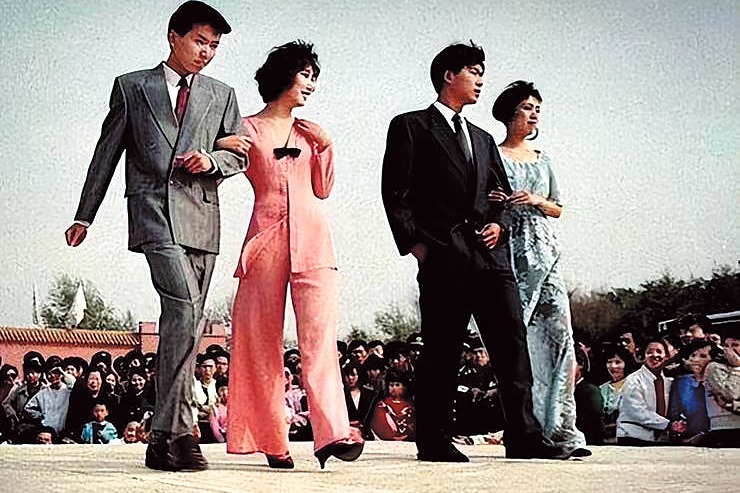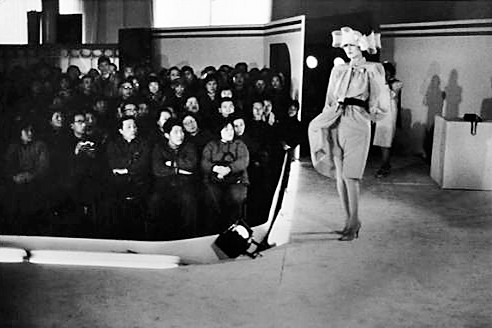Mine is mine, yours is mine


A recent service innovation by a well-known bank in China has many men up in arms, giving vent to a simmering frustration. Tiffany Tan reports.
Half a year before they got married, Yang Jinghuai handed over his bank card to girlfriend Zhao Li. They had just moved in together, and Yang, like many Chinese, believed men were the primary breadwinners, while their women took care of home and the family finances.
That was why he relinquished control of that piece of plastic into which his salary as a mechanical engineer was deposited every month.
"I believe this card is for the family," says Yang, 35, a native of Guizhou province who works for a foreign multinational corporation in Beijing. "I don't care whose hands the card is in, as long as money used is for the family."
Would he be interested in signing up for a bank service that will automatically transfer a chunk of his monthly income to his wife's account?
"Definitely not interested," he says without missing a beat, emphasizing that there shouldn't be a division between his and his wife's money.
Other Chinese men were also not enthusiastic when, in January, China Merchants Bank started offering a "capital accumulation" service targeted at couples. Described as a "time- and energy-efficient" way to save money, it's set up so that any funds that exceed a designated amount in the husband's account will go right into his wife's account.
"This will reduce all married men to tears. It's way too cruel," one netizen complained on Sina Weibo, China's top micro-blogging site, where the bank's advertisement had drawn fire with tens of thousands of comments.
Another person saw humor in the situation.
"From now on, when a man proposes marriage, he will say, 'My dear, will you marry me? I will set up a capital accumulation service for you.' To a woman, this will be the most touching and irresistible marriage proposal ever."
Then there were the more violent reactions: "The one who invented this service should die in apology."
China Merchants Bank, based in Shenzhen, is one of China's top financial institutions.
In a country where even unmarried men readily surrender access to their bank accounts to partners, why is there such vitriolic opposition from the men? How is an automatic money transfer that much different from giving her the same amount in cash every month?
It turns out that although giving a woman access to her husband's financial resources has become the norm in China, deep inside some men are unhappy with having to do so.
"They think, 'Why do I have to unconditionally give my wife what I earn? I've worked so hard for it while she hasn't done anything,'" says Qu Yang, a psychotherapist and marriage counselor at Beijing National Olympic Psychological Hospital.
A survey conducted last year by Baihe.com, one of China's leading match-making websites, found that 53.2 percent of female respondents expected husbands to hand over their salaries to their wives, while 28.2 percent of the men said this was unacceptable.
Chinese men have largely maintained this practice, Qu says, because "women often associate it with love".
A refusal to hand over his "money bag" is seen as a sign of disloyalty, says Chen Xiaomin, a sociology professor in Shanghai and director of the Chinese Research Society on Marriage and Family.
This brings us to the bottom line. Some women believe that a grip on her man's money is a grip on his faithfulness.
"A number of Chinese women try to control their husband's possible extramarital relations by controlling their financial resources, and thereby acquiring a feeling of safety," Qu says.
Infidelity is one of the top reasons for divorce in China, and the country's divorce rate has been on the rise for years.
In 2011, according to the Ministry of Civil Affairs, 2.87 million couples got divorced, a 7.3 percent increase over the previous year's figure.
Squabbles over money and property can contribute to a divorce, but they're rarely the main reason couples split up, say divorce lawyers.
"Money is a factor in any long-term relationship, much like who will do the dishes," says Huang Rui, a divorce lawyer with Shanghai Promise law firm. "But those marriages that fail over money were most likely bound to fail anyway."
Bank instruments like China Merchants Bank's "capital accumulation" service have been around since at least 2010, and Huang thinks they can actually be helpful.
"I can foresee situations where this account is held by the party having a better track record of sound financial management, therefore helping him to make decisions based on an aggregate view of the accounts," she says. "It will also save time and energy running around different banks."
But what happens when a couple who signs up for such a service gets a divorce one day?
All the income they've accumulated since marriage is considered joint property - no matter whose account it's in, Huang says. The court will rule on the division of their existing money and property, and a "capital accumulation" service will have no bearing on this process, she says.
Yang Xiaolin, a divorce lawyer in Beijing, disagrees and says it can lead to legal complications if the wife moves the man's money into a secret account yet tells the court she has spent it all. At the same time, the husband may have his own hidden account.
Professionals that help couples deal with practical matters - be they therapists, lawyers or bankers - all say that communication, honesty and teamwork are keys to a successful financial relationship.
From the outset, husbands and wives should be very clear over how they're going to handle their money, says Hsiao-yun Lee, CEO of Societe Generale's private banking arm in China.
Whether the wife or husband ends up in charge of the finances, major decisions, like buying a house or sending children to school overseas, should be made together in any healthy partnership.
A person who is good with financial affairs will not necessary also have good judgment on other matters, Lee says.
Wei Haoran and his wife might be able to relate to this.
He is the one who strategizes long term, while she pays all their monthly bills and makes the day-to-day spending decisions. Every month, the couple saves a part of their salaries into a third bank account.
So, would he be interested in the convenience offered by a "capital accumulation" service?
"No," Wei, 31, says. "It will be a disaster for me.
"Whenever she wants to buy something, I give her advice but leave it up to her to make the final decision," says the English teacher. "But when it comes to what I want to buy, there are always excuses why I can't do it."
Men know that marriage will restrict some of their freedom, but there are days they may want to take back their ATM cards and feel like they're still the bosses in the family.
Contact the writer at tiffany@chinadaily.com.cn.
Sun Ye and Han Bingbin contributed to this report.
(China Daily 03/08/2013 page21)
Today's Top News
- Leaders send greetings on China's 75th anniversary
- Calls grow for restraint in Mideast
- HK stocks rally to nearly 2-year high on stimulus tailwind
- China, Russia vow to further bolster ties
- President Xi congratulates new Japanese PM Ishiba
- It takes a team to reach summit of Kilimanjaro






























